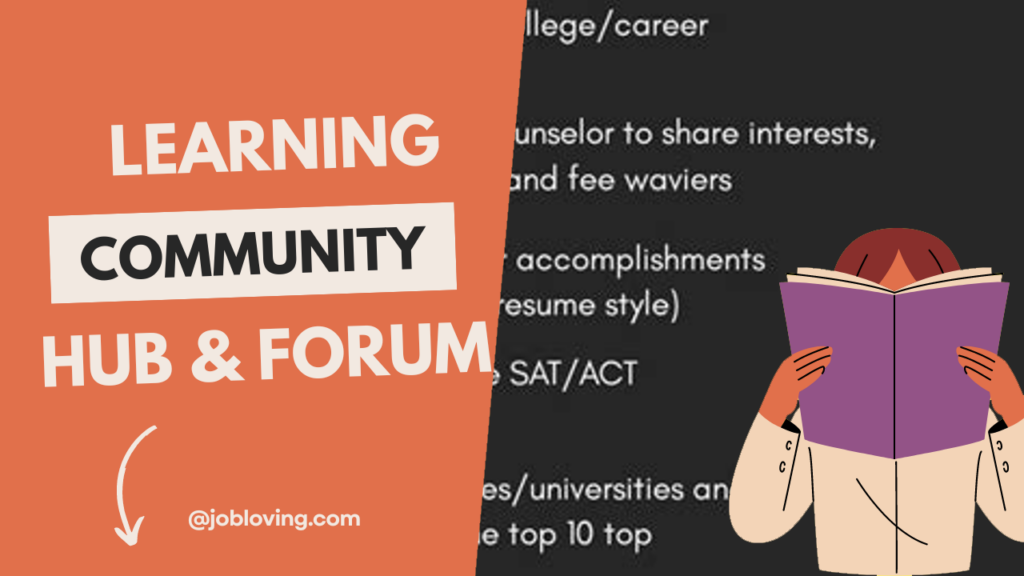Are you ready to launch your high school junior into the whirlwind of college applications? It’s an exciting time, but figuring out when to start applying can feel like deciphering a secret code written by a caffeine-fueled admissions officer. Fear not! We’ve got you covered with all the essentials to ensure a smooth transition into higher education!
The Short Answer: Start applying in the junior year!
While students commonly think of their senior year as the prime time for college applications, savvy juniors can get a head start! Most colleges, including prestigious ones like Harvard, allow students to apply for an early admission option. But it’s essential to note that the timeline can vary based on individual circumstances and the specific institutions in question.
Many high schools encourage students to begin their college search and application process in the spring of their junior year. This is the time to refine college lists, start boosting those GPA numbers, and, of course, prepare for standardized testing. The beauty of this timeline is that it gives students ample opportunity to tackle everything on their college checklist without feeling like they’re wearing roller skates on a slippery slope!
When it comes to admissions for transfer students, it’s a different beast altogether. Transfer applications to schools like Harvard are due on March 1st, so if your junior is considering taking that route, they should keep an eye on those deadlines. And remember, students can’t enter colleges like Harvard in the spring semester, so it’s all about timing!
In conclusion, guiding your junior to explore college options and prepare applications during their junior year not only alleviates last-minute stress but also helps them put their best foot forward. It’s all about strategy and planning to set the stage for success. Ready to dive deeper into college prep? Join the JobLoving community for more resources and tips, and empower your junior for the college journey ahead!
Key takeaways about When should my junior start applying for college?
Preparation Timeline
- College applications typically start during the junior year of high school for optimal preparation.
- Most students begin their applications in the summer before senior year for better organization.
- Juniors should take standardized tests like the SAT or ACT by spring of their junior year.
- Crafting personal statements and essays should begin in the summer before senior year for clarity.
- Research indicates that starting early reduces stress and improves the quality of applications submitted.
- Writing college essays early allows for ample time to refine and seek feedback from mentors.
College Exploration and Engagement
- Juniors should begin exploring colleges and visiting campuses by the end of their junior year.
- Planning college visits and attending college fairs should commence in the spring of junior year.
- Engaging in extracurricular activities should begin early to enhance college applications and personal statements.
- Part-time jobs or internships during junior year can strengthen resumes and demonstrate initiative to admissions.
- Developing a passion project showcases dedication and can enhance a junior’s college application profile.
Academic Readiness and Support
- Building a strong academic record should be a priority throughout junior year for competitive applications.
- Improving GPA and test scores during junior year is vital for competitive college admissions.
- Guidance counselors typically provide less support for juniors applying out of the traditional timeline.
- Applying to college as a junior is rare; most students should wait until senior year.
- Students should finalize their college list by the start of senior year for effective applications.
Application Strategy and Support
- Early decision applications can be submitted as early as November of the senior year.
- College application deadlines can vary widely; students must keep track of each school’s timeline.
- Seeking letters of recommendation should start in junior year to allow teachers ample time.
- Attending workshops on college applications can provide valuable insights and tips for juniors.
- Applying early does not guarantee admission; preparation and timing are critical for success.
Understanding the Impacts of Early Applications
- Strong academic records and extracurricular achievements are crucial for juniors considering early college applications.
- Missing senior year activities like prom and graduation is a significant downside to applying early.
- College admissions favor seniors with more extensive experience and well-rounded applications over junior applicants.
- Applying as a junior may limit opportunities to improve standardized test scores before submission.
- Starting college applications a year early can lead to overwhelming academic demands for juniors.
- Balancing college prep with personal time is crucial for a junior’s mental well-being and success.
- Spending quality time with family and friends is essential before transitioning to college life.

